Abstract Submissions
The registration and call for abstracts for poster presentations is open. It will remain open until 31 August 2013. The organisers will notify you if your poster has been accepted by September 15th, 2013.
The call for submitting abstracts for oral presentations and to apply for funding has closed. Applicants will be informed by mid-July of the outcome of their funding request and/or whether their abstract has been selected for an oral presentation
Efforts are currently underway to secure funding for scientists and researchers to attend the ACC-2013, particularly young Africa-based researchers and female scientists. Preference will be accorded to those whose abstracts have been accepted.
Call for Abstracts
The full text of the call for abstracts is available here.
The Africa Climate Conference 2013 (ACC-2013) aims to address new frontiers of knowledge on the African Climate system, and narrow the communication gap currently existing between African decision-makers and climate scientists, in order to develop a coordinated collaborative research strategy to improve climate science outputs so that they may better inform climate early warning responses and adaptation in Africa. Concrete pan-African and multi-disciplinary climate research program proposals and a concerted climate research effort, hosted across African climate research hubs, are anticipated from this major climate Conference for Africa.
The Scientific and Technical Steering Committee of the ACC-2013 now invites abstracts for either oral or poster presentations for the conference sessions detailed in section 2 of this Call. PhD candidates and young scientists from African institutions conducting frontier natural and social science research to improve predictability of the African climate system on subseasonal to seasonal, decadal and longer timescales, and enhance applicability of predictions to end-user needs, are particularly encouraged to submit abstracts. Female researchers are strongly urged to apply.
Abstract Submission
All interested researchers and practitioners are invited to select a Conference Theme and submit a relevant abstract of at least 500 words and no longer than 1000 words as part of the registration here: http://www.climdev-africa.org/acc2013part/register
Conference Themes
Africa Climate Conference 2013 (ACC-2013) abstracts and speakers will need to address one (or more) of the following Conference Themes, as follows. The Conference themes are expended upon in the Research Frontiers of African Climate Research and address the critical information needs of African end-users, policy-developers and vulnerable communities, to adapt to a changing climate and manage risks, now to the mid-to-end 21st century.
Abstracts should demonstrate understanding of the state of knowledge of the relevant research frontier and state clearly progress/new findings to be presented, as well as remaining gaps.
-
To support strategic ahead-of-season planning (1-month to 12-months outlook)
- Understanding and prediction of SST variability. Particularly attention will be given to frontier research on ocean basins less studied than the tropical Pacific ENSO region (e.g. Indian Ocean, Tropical Atlantic) that have comparable impacts on African rainfall.
- Understanding and representation of teleconnections in models to enhance forecast performance and interpretation.
-
To support intra-seasonal risk monitoring and management to inform within-season operations (5 to 40 days range)
- The Madden-Julian Oscillation (MJO) is the dominant mode of intra-seasonal variability in the tropics. Improved understanding and modelling of its impact on the temporal distribution of African seasonal rainfall, including rains onset and cessation, is a key research frontier.
- Convective systems, including mesoscale processes, are key rain-bearing systems, however, these processes are not well understood in Africa. Correct representation of these processes and their links to the larger scale circulation is essential for realistic simulation of typical temporal variability in rainfall and thus to the capability to predict risks of prolonged dry spells or periods of heavy rain and other high impact events.
-
To support longer-term strategic planning/policy development (next 1-10 years)
- Understanding of the drivers of natural decadal variability over Africa and its interaction with the climate change signal.
- Comprehensive evaluation of decadal prediction systems dedicated to regional prediction of near term climate change, geared towards providing early guidance on the likelihood of changes in seasonal rainfall patterns, hazardous weather and extreme climate events (such as recurrent drought in the Sahel and the 2011 Greater Horn of Africa drought). Where available also, evidence of good practice in exploring the potential for tailored multi-annual to decadal forecast products, trialed with users (adaptation policy developers and national planners).
-
To support Climate change adaptation policy development/planning (next 50 years)
- Understanding of processes and feedbacks relating to the carbon cycle, water cycle, aerosols, vegetation and their representation in climate models is needed to improve the physical basis of climate scenarios for Africa. Results of frontier research on the role of land-use changes over Africa in modulating climate change impacts are welcome under this theme.
- Good practice in developing robust climate change scenarios at geographical levels appropriate for end-user decision-making. CORDEX Africa researchers are strongly encouraged to submit their relevant findings under this theme.
- Attribution of recent extreme events in Africa. Research assessing and refining methodologies for near-real-time attribution of climate events, to provide timely analysis to governments/decision makers. Two important focus areas are: the Greater Horn of Africa region, where recent drying trends and drought episodes appear counter to the predicted longer-term change to wetter conditions, and the Sahel, where recent greening as a long-term trend or a decadal cyclical return of rains needs to be further probed into. Any research improving understanding of climatic changes in these two priority regions, and any other of Africa, are welcomed under this theme.
-
Assessing the current vulnerability due to recent climate events
- Evidence of good practice in improving observation, analysis capability and historical database development as well as development of products from observations. Enhancing the observations network and local capability for analysis of observations for both climate and socio-economic variables through:
- Database construction and reconstruction (including for impact datasets, e.g. crop yields, health statistics, etc.)
- Data rescue
- Analysis of observed data and development into user-relevant products
- Development of better-targeted applications models, across all climate-sensitive sectors.
-
Estimation of the impacts of climate variability and change
- Research on integration of climate predictions on all timescales (seamless forecasting) with application modelling to help optimise usefulness to users. Key areas include: agriculture and food security (regional crop yields; crop pests and diseases); health (movement and onset of diseases); water resources and energy (river flows, irrigation systems, hydro-electric systems, rural and urban water supply).
-
Decision making at local scales
- Initiatives to develop an ‘in house’ capability for regional downscaling, including of seasonal forecasts, in African centres have been started but need consolidation and promulgation to all regions. Where benefits are demonstrated, these activities can be developed into operational services running in relevant regional African centres. Evidence of successful and less successful methods and experiences developing such in-house capability are welcome under this theme.
-
Building credibility and confidence in predictions, across timescales
- How to better characterize performance, credibility and confidence for predictions on all timescales, most notably intra-seasonal and longer-term climate forecasts, in consultation with end-users, to facilitate use of forecasts across timescales for early warning leading to early action
-
Mainstreaming climate services into policy formulation and decision making, at all timescales
- How to improve communication of climate services and enhance understanding/trust between providers and users of climate information?
- Capacity-building strategies at all levels, including ideas on how best to conduct and encourage education, training, courses, workshops, outreach etc. for effective science-based adaptation and risk management decisions
- Effective strategies to foster open partnership between practitioners/users of traditional systems of climate prediction and climate scientists, to bridge the cultural divide and improve the local relevance of scientific forecasts for local decision-making in Africa.
Priority |
Decision-making process and end-user information gap |
Climate Research Frontier (CRF) |
|
1
|
Process:Strategic ahead-of-season planning (1- month to 12-months lead range). Information gaps:
|
Theme:Seasonal prediction Key research frontier areas:
|
|
2
|
Process:intra-seasonal risk monitoring and management / within-season operations (5 to 40 days range) Information gaps:
|
Theme:Sub-seasonal prediction Key frontiers areas:
|
|
3 |
Process:Longer-term strategic planning/policy development (next 1-10 years) Information gap:
|
Theme:Decadal prediction Key frontiers:
|
|
4 |
Process:climate change adaptation policy development/planning (next 50 years) Information needing improvement:
|
Theme:Climate change scenarios Key frontiers:
|
CROSS-CUTTING THEMES |
||
|
CCT#1 |
Process: Assessing current vulnerability due to recent climate events Information gaps:
|
Theme: Observation networks, and database analysis and development Key frontier areas:
|
|
CCT#2 |
Process:Estimation of the impacts of climate variability and change |
Theme: Applications modelling Key frontiers:
|
|
CCT#3 |
Process: decision making at local scales Information gaps:
|
Theme:Downscaling Key frontier areas:
|
|
CCT#4 |
Process: building credibility and confidence in predictions |
Theme:Forecast evaluation Key frontiers areas:
|
|
CCT#5 |
Process: Mainstreaming climate services into policy formulation and decision-making, at all timescales |
Theme: Communication and climate service provider/user interactions Key frontier areas:
|
Contact
For further information on the abstracts submissions on other topics or general questions relating to the ACC-2013 conference, please email acc2013@climdev-africa.org, or visit the conference website at:http://www.climdev-africa.org/acc2013.
- Log in to post comments
|
UN Economic Commission for Africa, Menelik II Ave. P.O. Box 3001, Addis Ababa, Ethiopia. Tel: +251 11 551 7200, Fax: +251 11 551 4416
World Meteorological Organization, 7bis, avenue de la Paix, Case postale 2300 CH-1211 Geneva 2 Switzerland. Tel.: +41 (0) 22 730 81 11 Fax: +41 (0) 22 730 81 81
|
Sponsors
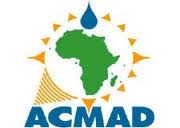 |
 |
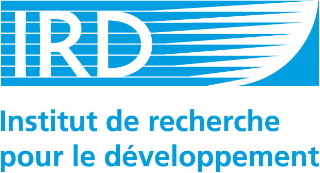 |
 |
 |
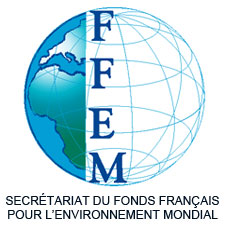 |
 |
 |
 |
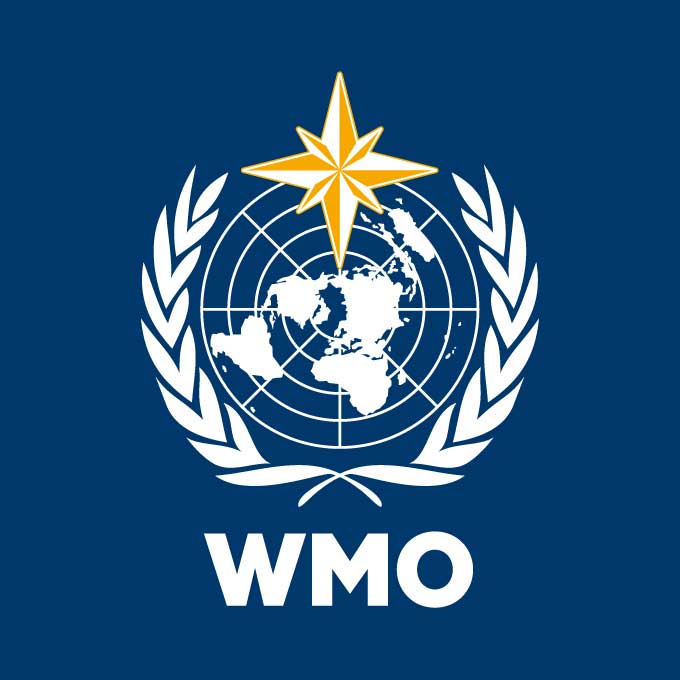 |
 |
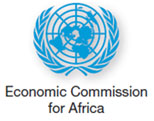 |
 |
 |
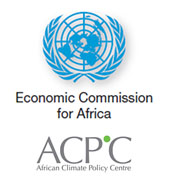

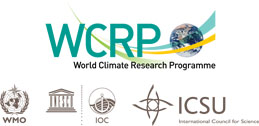



Comments
Poverty and Climate Change
Reduce the vulnerability of poor people by adapting to climate change.
Climate change poses a serious risk to poverty reduction by threatening to sweep several decades of development efforts. As highlighted in the Johannesburg Declaration on Sustainable Development, << the adverse effects of climate change are already evident, natural disasters are becoming more frequent and devastating, and developing countries more vulnerable. >> Climate change is indeed a global phenomenon, but its adverse effects are most strongly felt by people and poor countries. They are particularly vulnerable because of their high dependence on natural resources as well as their limited ability to cope with climate vulnerability and extreme weather events (heat waves, heavy rainfall, droughts, etc.). Capacity and the more gradual changes in mean climate threaten their livelihoods, further widening inequalities between the developed world and the developing world.
Experience suggests that the best way to combat the impact of climate change on the lives of the poor is to integrate adaptation into development planning. This is essential for achieving the Millennium Development Goals, including the first and fundamental objective is to halve extreme poverty by 2015 and continue beyond the eradication of poverty .
This summary focuses on the implications of climate change on the fight against poverty in the context of achieving the Millennium Development Goals and beyond. It explores ways to mainstream adaptation to climate change in efforts to integrate poverty reduction and sustainable development.
The purpose of this summary is to contribute to the debate of the Climate Conference in Africa in 2013 on how to integrate adaptation to climate change in the fight against poverty. We hope it will advance the dialogue by pointing concrete action. The development of adaptive capacities to minimize embrittlement or degradation of existence means induced climate change is a necessary complement to mitigation efforts of the latter.
Adaptation to climate change, meaning there any response to climatic conditions is likely to reduce vulnerability must be considered an integral part of urgent and comprehensive strategies for poverty reduction. The adaptation should not be seen as an autonomous activity, separate from other environmental and socio-economic concerns that affect the development opportunities of the poor. It is essential to develop a comprehensive approach that takes into account both synergistic and antagonistic potential between local and global environmental changes that socio-economic factor.
Although this joint summary focuses on adaptation to climate change in the context of the fight against poverty, we must not forget that this adaptation must go along with the mitigation of climate change by limiting concentrations of greenhouse gas emissions in the atmosphere. We also reaffirm that it is the industrialized to be the vanguard of the fight against climate change and its adverse effects.
We share a common commitment to support and work with the poor, governments, partners, civil society and the private sector to reduce the vulnerability of the poor to climate change. We are committed to ensuring that our own institutions support this commitment. Our states should aid us in achieving this objective to contribute to the mitigation of climate change for the welfare of our poor.